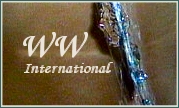

by Ines Kistenbrügger
In the Wall Street Journal (15th October 2003) an interesting article about international trade can be found: The European Union has announced that it has taken all necessary steps to forever ban the American beef from the European Market. According to the EU the hormone loaded meat means a health threat to their people. In latest researches one of the six hormones used to increase the growth rate of cattle is found to be carcinogen while the others pose an undetermined risk to the consumers. Since the ban is justified, the EU asks the US to lift the 116 million tariffs imposed on European luxury goods.
When in 1996 the EU first banned the American beef from its markets. The US filed suit against this ban within the World Trade Organization (WTO). The WTO allows countries to ban products with a certain health risk, however, the US did not think the analysis and researches “were rooted in science”. Dozens of studies to prove this thesis have been conducted, all of which have been rejected by the US. In 1999 punitive tariffs were imposed on European goods from French cheese to Italian handbags.
Now the EU has completed all studies and necessary legislation. Therefore, it expects the WTO to accept the ban and to force the US to lift the tariffs. Nevertheless, Chandler Keys, a US lobbyist for the National Cattlemen’s Beef association, believes that the ban is “pure protectionism and has nothing to do with real science”. He already promised to fight back.
The article written by Neil King Jr. primarily deals with the beef ban and the actions and reactions on both sides of the dispute. As far as I am concerned I assume the health risk is just a minor aspect in this fight and more or less we are dealing with another issue: a disguised price war in an open world market. Of course in the world markets which we need and expect to grow together, it is difficult to consider the well-being of the consumers in all aspects. As we have seen a ban usually is followed by consequences. Here the high tariffs on European luxury goods. The tendency of the Europeans to buy organic food is greater than in the US, where the organic trend seems just to have started and because of its high prices been left as an option for the wealthy. Somehow, it really seems, that Americans seem to worry less about how healthy they eat as long as no fat is involved and there are enough vitamin pills to take.
We should not neglect in this survey, that the European beef market has suffered badly in the past years from the mad cow disease BSE. And additionally, European meat suffers likewise from growth hormone treatment. However, the use of these hormones is restricted and done less obese than in US cattle farms.
How far can we as a world population go to keep productivity rates high and prices low. Producing meat fast at low cost is one reason for the use of growth hormones. Producing consumer goods with the least production costs is one of the aspects we have to deal with when competing in the world market. As e.g. in the automotive industry the lowest price runs the market.
We can certainly assume that the Europeans might not be able to compete with the US beef prices. The EU’s only chance to fight in this price war is to ban American beef. Luckily, there seems to be the legal reason to do so. As sad as it might sound, in my opinion the whole situation points to the problems in liberalizing the agricultural world market of the WTO and less to health aspects. The benefit the European consumers have, meaning to keep the meat quality while accepting the lowest health risk, seems to be just a side effect of this dispute.
The WTO meeting in Cancun, Mexico has collapsed in September. The 48 member countries failed to come to an agreement with regards to agricultural trade liberalization. In my opinion, we will have to wait longtime until the WTO finally agrees on how trade barriers can be lowered. However, considering the environmental and health issues behind the world trade, it seems to be good that there are some places in the World where US hormone contaminated products will not be found on the shelves of the supermarkets tomorrow.
2003-10-15 Ines Kistenbrügger, Wirtschaftswetter
aritcle ©Ines Kistenbrügger
banner: ©aph
Infos zu Datenschutz + Cookies
back to: International
wirtschaftswetter.de
©2003-2021 Wirtschaftswetter Online-Magazine